No matter where you live, hard water is a fact of life that can cause problems for your household plumbing and the appliances that rely on it. In just one home, hard water can damage pipes, leave behind white scaly residue in sinks and bathtubs, and shorten the lifespan of washing machines. Fortunately, proper maintenance with the right water softening system can help control and prevent these unwanted effects from hard water. But how do you choose the best option? This will provide helpful advice to ensure that you select the best system for your home without making any costly mistakes.
1. Determine the Hardness of Your Water
When deciding which water softening system is right for you, it’s important to first understand the level of hardness in your home’s water. You can do this by testing your water. One way you can measure it is by using a water hardness test kit which will let you know the exact contents of your water, including iron, manganese, calcium and magnesium. Knowing the specific levels of each will help you choose the right system for your needs.
Another way to check the hardness of your water is by looking at the amount of soap scum in fixtures and appliances. If you notice more buildup than usual, this may indicate that your water is hard. Also, if you’re unsure, you can always contact a local water treatment specialist to test your supply for hardness levels. Depending on the region in which you live, hard water levels may vary depending on your proximity to natural bodies of water or sources of mineral content.
2. Consider Your Household Size and Needs
What works for one household might not work for another and it’s important to consider the size of your home and the amount of water you use when choosing a water-softening system. Before investing in a new unit, consider how many appliances in your home rely on clean, softened water. Are there any special needs, such as medical-grade water treatment for health reasons? Do you have multiple bathrooms or other fixtures that require more attention? These are all factors that can help guide your decision.
Another factor is the size of your household. If you live alone, a smaller unit may be enough to keep up with demand. But if you have a larger family or extended guests who stay with you often, then a bigger system may be necessary. You should also consider how often you need to replace or refill the filter media, as this can be a factor in choosing the right system for your needs.
3. The Water-Softening System Type
Depending on your budget and requirements, a few different types are available, including salt-based systems, magnetic systems, electronic systems, reverse osmosis systems, and carbon filters. All offer unique benefits depending on their design. So, it’s important to research each one before making a decision.
Salt-based systems, for example, are the most efficient and cost-effective way to reduce hard water in your home. They work by exchanging minerals with sodium which then softens the water as it passes through.
Magnetic systems use small magnets to attract and break down limescale particles that can clog your pipes or cause damage to appliances over time. Electronic systems employ electromagnetic fields that help dissolve calcium carbonate in the water supply, thus reducing hardness levels.
Reverse osmosis systems are more expensive but offer more advanced filtration than traditional salt-based models. They use a semi-permeable membrane that filters out contaminants and impurities like calcium and magnesium. Carbon filters are ideal for purifying the water supply by removing chlorine, odors, and other unwanted impurities.
4. Consider Installation Costs and Ongoing Maintenance
When choosing a water-softening system, it’s important to factor in the installation cost. Professional installation can be expensive but necessary if you don’t have experience with plumbing or mechanical systems.
In addition, think about any potential maintenance costs that may be involved with whatever model you choose. Some systems require more frequent filter changes or refilling than others. Make sure to research how often maintenance is required before investing in one particular system over another.
Finally, consider whether or not your water softening system will require regular servicing from a professional technician. Most models come with an easy-to-follow instruction manual, but DIY repairs are not recommended. It is best to leave any plumbing or mechanical repairs to a qualified plumbing professional who can properly assess and address any issues. A company like Childers Air Plumbing & Electric is a reliable provider of these services for residents of Raleigh, Braxton and Clay counties and the surrounding areas.
5. Warranty Coverage
A warranty is an important part of any purchase, and it’s worth taking the time to research what kind of coverage each system offers. Most water softening systems come with a one-year manufacturer warranty that covers defects in materials and workmanship, but some may offer extended warranties for additional protection.
It’s also important to ensure you understand how long the warranty is valid and any conditions or exclusions that may be attached to it. Knowing exactly what’s covered can help ensure that your investment is properly protected against any potential damage or repairs in the future.
A good warranty should cover parts, labor, and shipping costs associated with repair or replacement. This can help give you peace of mind that if anything goes wrong, you’ll be able to get your system back up and running as quickly as possible without incurring any extra expenses.
6. Your Budget
A clear idea of how much you want to spend on a water-softening system is essential in finding the right solution for your home. At first, investing in a high-end model may seem like a good idea. However, if you don’t need all of its features or have limited space, then it may end up being more cost-effective to go with something simpler. Taking time to research different systems and their associated costs can help you make an informed decision that fits both your budget and needs.
7. Customer Reviews and Ratings
Reading customer reviews and ratings is one of the best ways to understand how well a water-softening system works. Take into account both positive and negative feedback, as this can help you gain a better understanding of how the unit will perform in your own home.
In addition to reading online reviews, you should also ask friends or family who have experience with water softeners for their opinion on certain models. This can be invaluable when it comes to making a decision, as it gives you insight from someone who has personal experience with the system in question.
From size and type to installation costs and warranty coverage, there are many factors that go into choosing the right water-softening system for your home. Taking time to research all of these factors can help you make an informed decision that fits both your budget and needs. Additionally, reading customer reviews and talking to friends or family who have experience with water softeners can also provide valuable insight into what model is best for you. With careful consideration, you will be able to find the perfect water-softening system that meets all of your requirements.
At Childers Air Plumbing & Electric, we provide air conditioning, heating, electrical and plumbing services, among others. We pride ourselves in excellent customer service and quality workmanship. Call us today to learn more about services or to schedule a service call.

